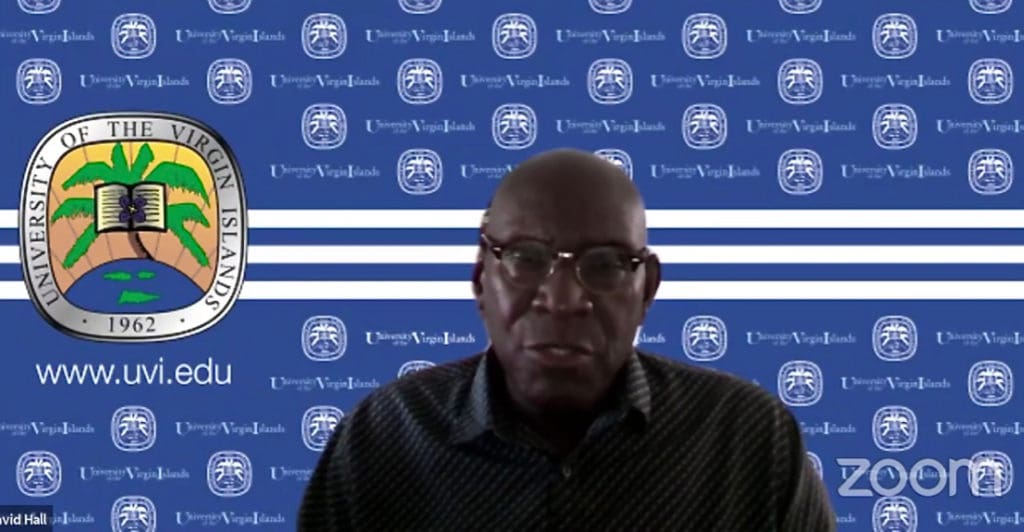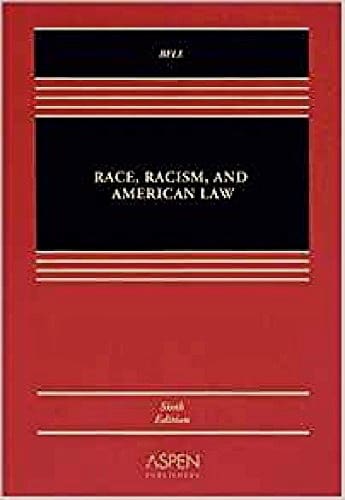
UVI President, David Hall, was a guest speaker on UVI Students Activities weekly “Pep Talk” livestream last week, speaking about racial injustice and social unrest.
He started the Wednesday discussion by referencing Paula Giddings’ book, “When and Where I Enter,” calling it “a framework for discussions about race and racism, because how we enter the discussion, what our life experiences have been about, greatly influences how we see the world, how we see and understand racism, how we see and understand the racial injustice and the social unrest that is occurring now.”
He then gave background information about himself so viewers could understand how this problem has influenced who he is today.
He was born in Savannah, Georgia, in 1950, four years before Brown v. Board of Education, which means most of his early life was a “segregated reality.”
In the South, the way of life during his childhood was established by the Supreme Court’s ruling in the 1896 case, Plessy v. Ferguson, which upheld “separate but equal.”
“Of course, we all knew on the ground that it was not equal. It was always separate, but not equal,” Hall said.
He went to segregated schools where he used outdated books that had been used in white schools the previous year. He had a choice of two Black movie theaters that were not as nice as the white theaters in his city. Black people were not allowed on certain streets after a certain time unless for work and had to sit in the back of the bus as social and public life was created around that principle.
“This reality and the consequences of living like this sent a psychological message to us that we were inferior, that we were not worthy,” he said.
In 1967, the local school board started making changes and developed a “freedom of choice” plan, which allowed white students to attend Black schools and vice-versa, but Hall said very few of his Black friends chose the option to leave his school. But the plan allowed for all the schools in Georgia to be under one system.
Hall’s basketball team won the state championship the first year that white and Black schools were able to compete against each other.
“Our victory was more than athletic competition, it was a powerful message that we could not be held down and that the system of segregation and white supremacy was developed so our talent skills and abilities would not be on display.”
With the extra exposure of playing in the combined league that was not afforded to his classmates just a year earlier, he earned a scholarship to Kansas State University and experienced a major culture shock as “for the first time I’m going to classes with white students, in an environment where I had white teachers and coaches,” he said.
In college, he widened his perspective from listening only to Martin Luther King Jr., but to other writers, including Malcolm X and Stokely Carmichael, who “were raising our consciousness about what society really stood for.”
The background established how his experiences made him want to change the system.
“For me, racism and white supremacy is not a theoretical exploration. It’s not something I just read about, and I think I now understand it. My life was shaped, influenced and limited by the existence of white supremacy in a very direct manner,” Hall said. “My desire to, directly and indirectly, dismantle it and as much of its consequences as I can are also a direct consequence of those early years growing up in this system, and my years of college, that was inspiring me to do something different.”

While at law school, while looking for material to teach an undergrad class in the ethnic studies department about law, he came across a book called “Race, Racism and American Law,” by Derrick Bell, a book that laid out “the definite analysis and thoughtful presentation on the role of law helping to preserve racism and white supremacy, and the role of law in trying to change it.” He used the book from 1979-2008 as a law professor and encouraged viewers to read it to further their understanding of the topic.
He then highlighted five key themes that always occurred as he tried to teach this course:
1 – Racism and white supremacy are endemic to American law and life. “It is embedded into the law of the nation, and it is embedded into the culture of the nation,” he said.
2 – There is an inextricable link between protest, social unrest and the quest for racial justice. “That has been as consistent in this country as anything else.”
3 – There is always a backlash to progress because of “the failure of people to change their hearts, and because of a failure of white leadership.”
4 – The “dream of justice delayed” and the effect of delaying the dream of justice, referenced in Langston Hughes’ poem, “Harlem.” “What happens if a dream is delayed?” Hall mentioned that even though Brown versus Board of Education, which overturned Plessy versus Ferguson, was handed down by the Supreme Court in 1954, he still went to segregated high schools his whole life.
5 – The concept of the permanency of racism. “Racism is just an inevitability in this society, it is not going to go away, therefore, for those who are victims of racism and white supremacy, the best bet must be to build up our communities, to build up our families, to ensure that we are not so vulnerable to the consequences and the pain of racism.”
The full talk can be seen online here.





